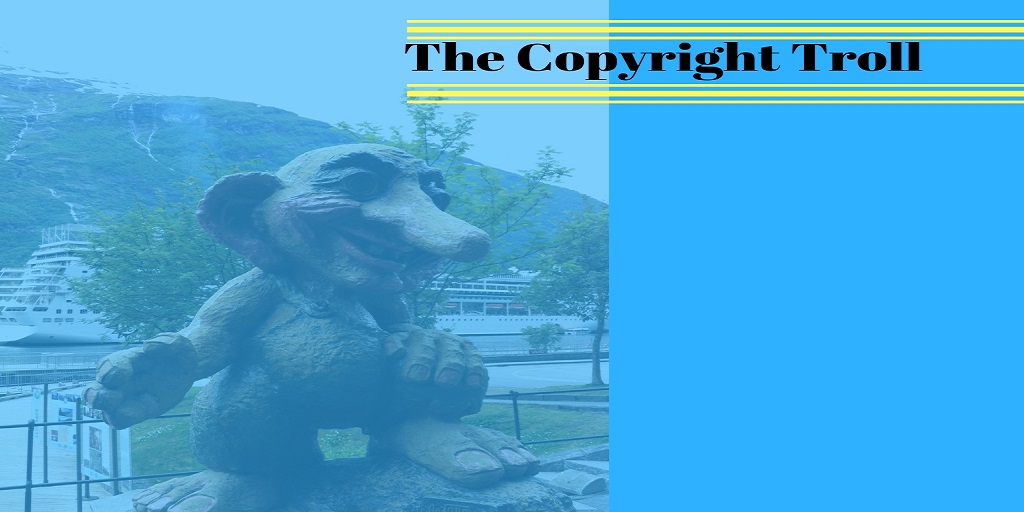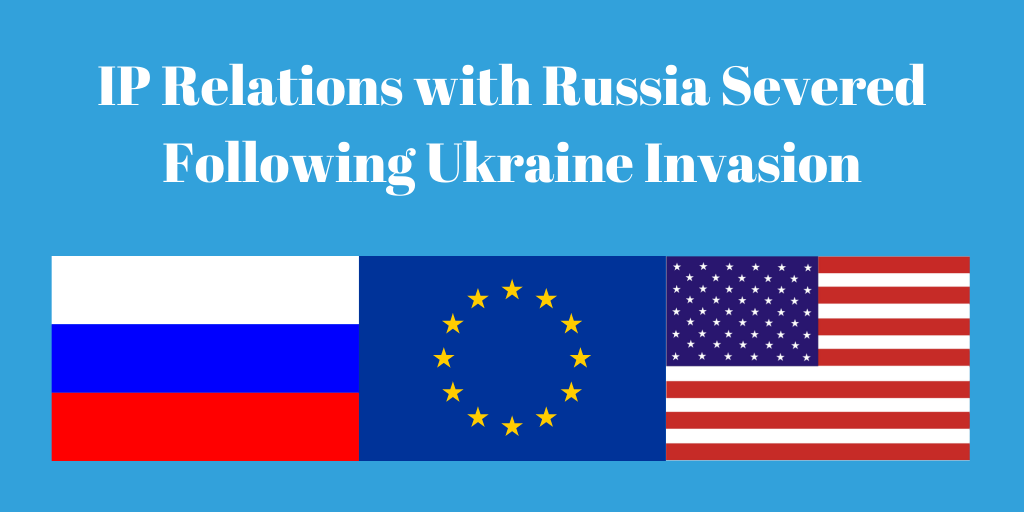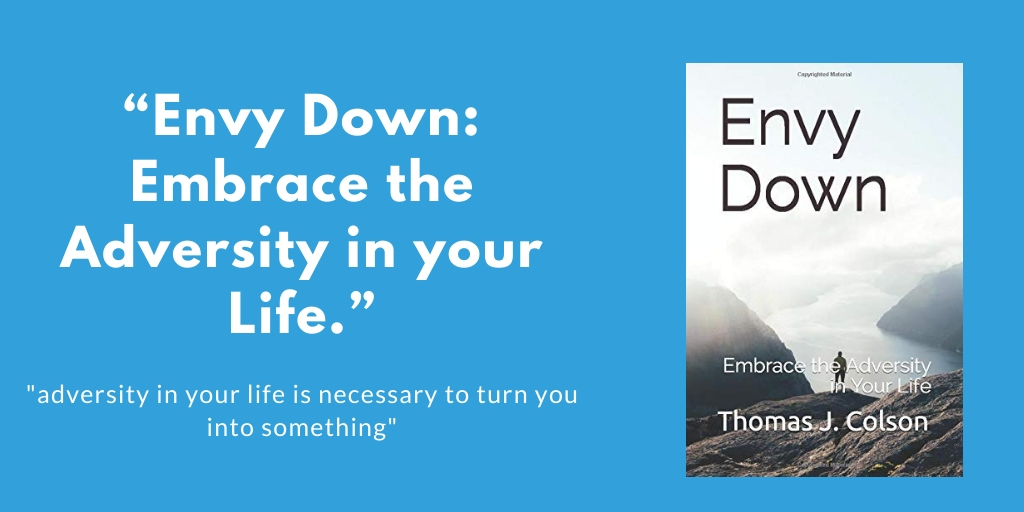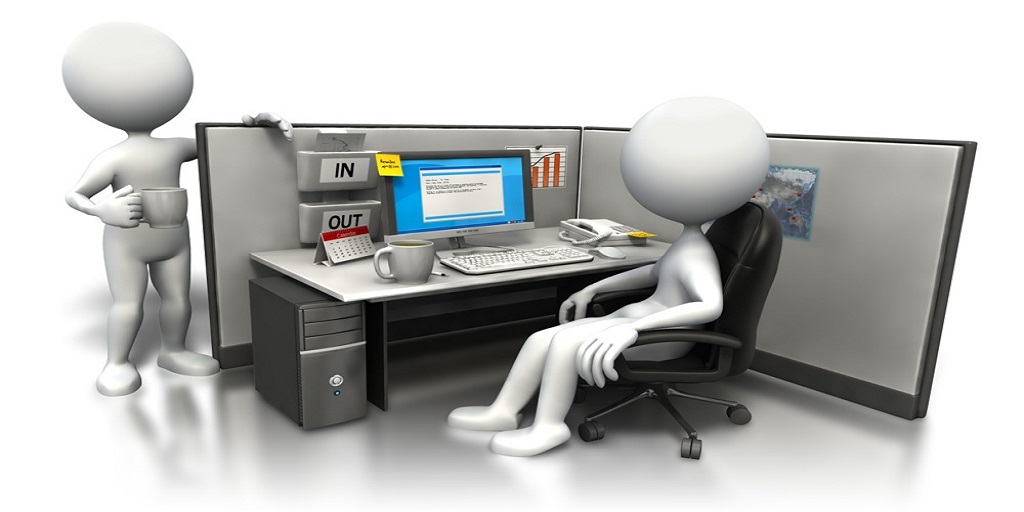The Copyright Troll
Copyright and the Internet.
The internet.
We all know of it and we all use it. It has so many neat things that could keep us entertained for hours. But not everything on the internet is free. Sometimes you have to pay to get authorization to use or download something from the internet, which leads to the question: Have you ever tried to download stuff without checking whether or not you could do so without permission? You probably thought to yourself “the internet is huge! There are billions of users! I’ll never get caught!”
In some instances, you may be right. But at other times, you may be wrong and could get in trouble.
Why would I get in trouble for downloading stuff off the internet?
A lot of things on the internet have copyright protection. Downloading copyrighted materials off the internet without authorization would therefore amount to copyright infringement. When there is copyright infringement, the copyright holder can exercise certain rights to protect their copyrighted works.
Whoa, whoa, whoa. Back up. What’s copyright?
Copyright is the “exclusive legal right, given to an originator or an assignee to print, publish, perform, film” certain types of works. 17 U.S.C. § 102 lays out what kind of things or materials that may qualify for copyright protection. Things like music, pictures, software, video games and even memes fall within the scope of 17 U.S.C. § 102. But falling into the scope of 17 U.S.C. § 102 alone is not enough for to get copyright. The work must also be an original work of authorship and have some degree of creativity. Moreover, the work may have to be fixed to some sort of tangible medium.
Certain legal rights attach to the work after it meets all these requirements and attains copyright protection.
Click here to see the rest of 17 U.S.C. § 102.
What are the legal rights attached to a copyright?
Under 17 U.S.C. § 106, the copyright holder has the exclusive rights to do and to authorize any of the following:
(1) to reproduce the copyrighted work in copies or phonorecords;
(2) to prepare derivative works based upon the copyrighted work;
(3) to distribute copies or phonorecords of the copyrighted work to the public by sale or other transfer of ownership, or by rental, lease, or lending;
(4) in the case of literary, musical, dramatic, and choreographic works, pantomimes, and motion pictures and other audiovisual works, to perform the copyrighted work publicly;
(5) in the case of literary, musical, dramatic, and choreographic works, pantomimes, and pictorial, graphic, or sculptural works, including the individual images of a motion picture or other audiovisual work, to display the copyrighted work publicly; and
(6) in the case of sound recordings, to perform the copyrighted work publicly by means of a digital audio transmission.
Violation of any of these rights will amount to copyright infringement.
Click here to see the full section of 17 U.S.C. § 106
Copyright trolls can capitalize on these exclusive rights.
Although the rights conferred by 17 U.S.C. § 106 were designed to prevent others from violating the rights of copyright holders, there are certain kinds of individuals or entities that misuse these rights. These individuals or entities are called copyright trolls. Copyright trolls use the exclusive rights conferred by copyright law not to protect their works, but rather to derive a financial benefit.
How would copyright trolls derive financial benefits from copyright protection?
Copyright trolls generally use the exclusive rights in 17 U.S.C. § 106 to allege copyright infringement and sue for damages. You may think that this is no different from a regular copyright holder asserting their rights, but it is different in the sense that copyright trolls use the rights exclusively to sue people rather than to protect their rights.
How it generally works is a copyright troll will attain a copyrighted work usually by purchasing it from an individual or entity. The troll then tries finds those who have infringed on these rights and proceeds to demand a settlement payment or threaten to bring suit.
Let’s use a real world example of how this would play out. A lot of internet users out there utilize BitTorrent to download materials that are copyrighted. Generally, a plethora of users to join a “swarm” and download or upload to each other simultaneously. You can imagine that there are thousands of users within the swarm.
However, the copyright troll can join the swarm and obtain the IP addresses of those within the swarm downloading the copyrighted material. After getting the IP addresses, the copyright troll proceeds to track down the users via their IP addresses and threaten suit. The copyright troll is different from the regular copyright holder in the sense that the copyright troll tries to sue as many people as they can and may end up suing tens of thousands of users. Another difference is rather than trying to stop others from infringing, the copyright troll is mainly trying to get the infringers to pay and settle the claims.
What are your thoughts on the copyright trolls? Leave a comment below and let us know what you think!
Interested in more IP? Here’s a video below!
Sign up today!
Does this article interest you? Subscribe to the LoTempio Law email newsletter to receive posts and updates just like this conveniently in your email box!
If you’ve enjoyed this blog post, we have lots more where this came from, including an Inventors Guide Video Series where we help you turn your good idea into a profitable invention, and tons of other great content. Simply enter your email address and hit sign up and you’ll get everything, including blog posts like these, conveniently in your email box!
Have any questions? Give us a call at 1-800-866-0039. Consultations are FREE.
Disclaimer: This article is not legal advice. It is only for educational or entertainment purposes only. Please do not use the article or contents of the article without permission. For legal advice and questions, please contact registered Patent Attorney Vincent LoTempio.
.




